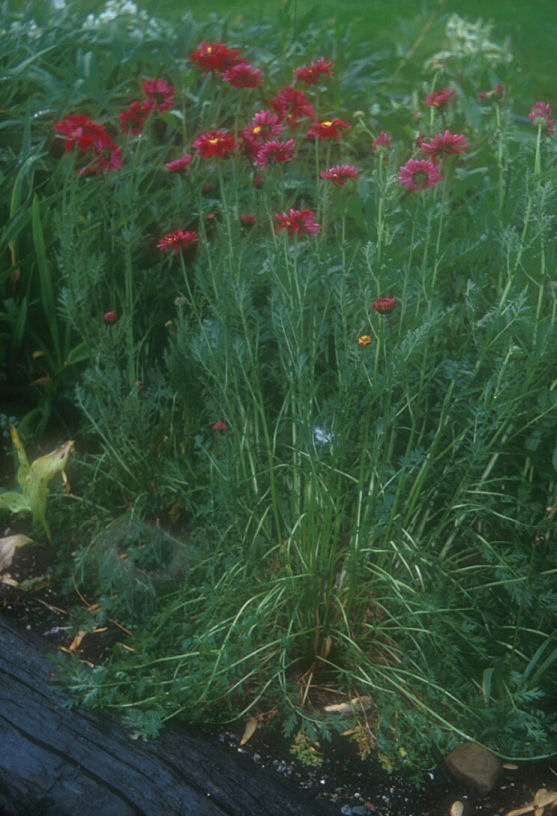| Botanical Name: Tanacetum coccineum | |
| Common Name: Painted Daisy |

-
Anatomy
-
Culture
-
Design
Plant Type
Perennial, Annual
Height Range
1-3'
Flower Color
Pink, Red, White
Flower Season
Spring, Summer
Leaf Color
Green
Bark Color
n/a
Fruit Color
n/a
Fruit Season
n/a
Sun
Full
Water
Medium
Growth Rate
Moderate
Soil Type
Sandy, Loam
Soil Condition
Average, Rich, Well-drained
Soil pH
Neutral
Adverse Factors
n/a
Design Styles
English Cottage, Meadow, Ranch
Accenting Features
Showy Flowers
Seasonal Interest
Spring, Summer
Location Uses
Entry, Perennial Border, Patio
Special Uses
Container, Cut Flowers
Attracts Wildlife
n/a
Information by: Stephanie Duer
Photographer:
Photographer:
-
Description
-
Notes
Painted daisies are charming, old-garden flowers, with deeply cut, almost ferny foliage, and large daisy-like flowers in very un-daisy-like colors. Blooms late spring to early summer, in shades of pink, reds, and white. Grows about 24 inches tall and 12 to 18 inches wide. Good cut flower and well suited to a cottage style garden. The downside is that they seem to be short lived due to our very hot and dry summers. A shame, but if you're buying cosmos, this would be a perfect companion.
Grow in well drained soil in full sun to mostly sunny sites. Adaptive to soil types, though heavy clays are not ideal. Deadheading will encourage continued bloom (at least until it gets too hot). It might be safest to treat them as an annual in the garden, but you never know. Also listed as Chrysanthemum coccineum and Pyrethrum roseum.